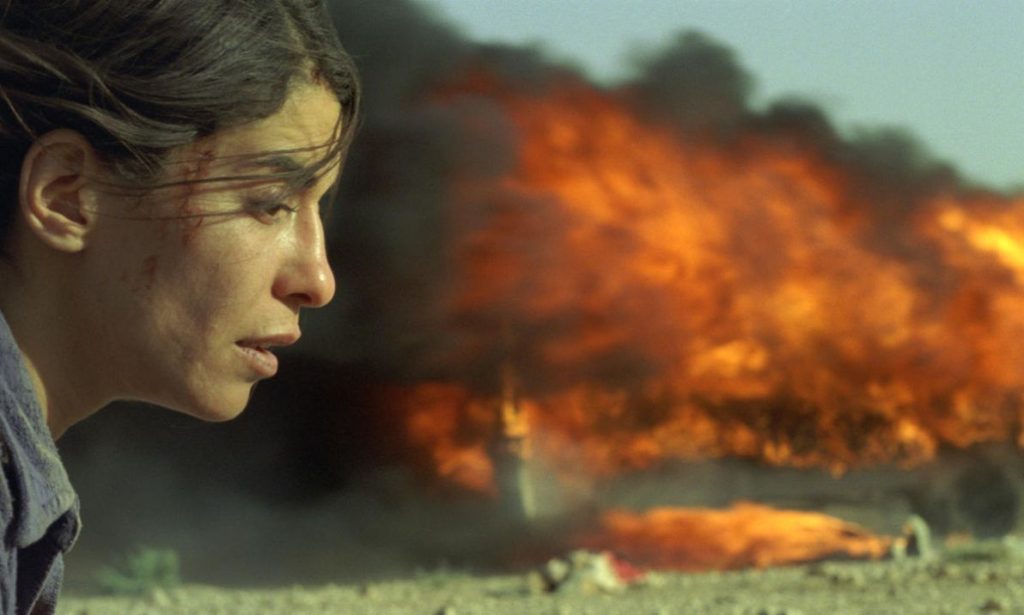Real cinema stems from an honest representation of a subjective human experience that finds its audience. And cinema, unlike other forms of art, is most capable of playing with people’s emotions. It is the most direct art that speaks to the senses and beyond. In that lies a huge benefit and lurking threat. Right now, when the larger audience thinks of humanitarian cinema, what comes to mind are films depicting the holocaust, slavery in North America, or universal themes.
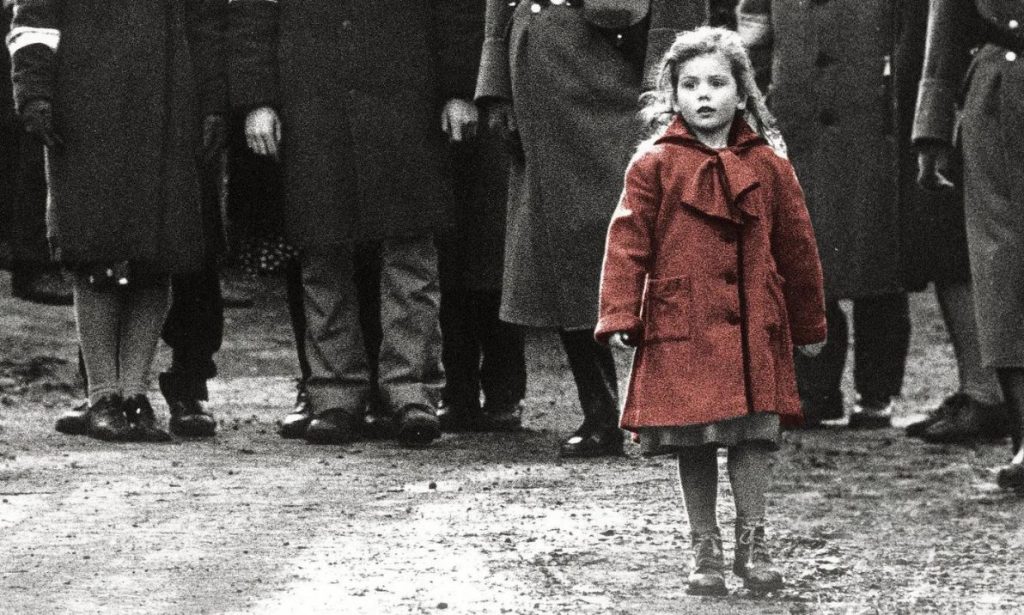
In 1993 the American director Steven Spielberg made one of the most notable, and most touching films in the modern age Schindler’s List. This film, among others, embodies the humanitarian aspect of cinema. In Schindler’s, Spielberg snapshotted the pains of WWII inflicted upon innocent Jewish people by Nazi Germany. That involved everything from forced labor, the holocaust, rape, displacing and tearing families apart. War was depicted in the entirety of its absurd brutality.
In 1997, Roberto Benigni directed the now Italian classic, It’s a Beautiful Life which shares the shocking absurdism of war with Spielberg’s film. The main character, an imprisoned Jewish father is humorizing his way through the holocaust.
Those are only two notable examples in the breadth of a post-world War canon of films attempting to depict what happened to the Jewish people. Despite their success, they were met with criticism. Film Director Stanley Kubrick had once said Schindler’s List “The Holocaust is about 6 million people who get killed. Schindler’s List is about 600 who don’t.”
Earlier this year, celebrated American filmmaker Christopher Nolan known for other war films like Dunkirk shook planet Earth for several weeks upon the release of his blockbuster Oppenheimer. Again, the cinema effect resulted in sympathy with the devil “Oppenheimer” the main guy behind the world’s deadliest atomic bombing.
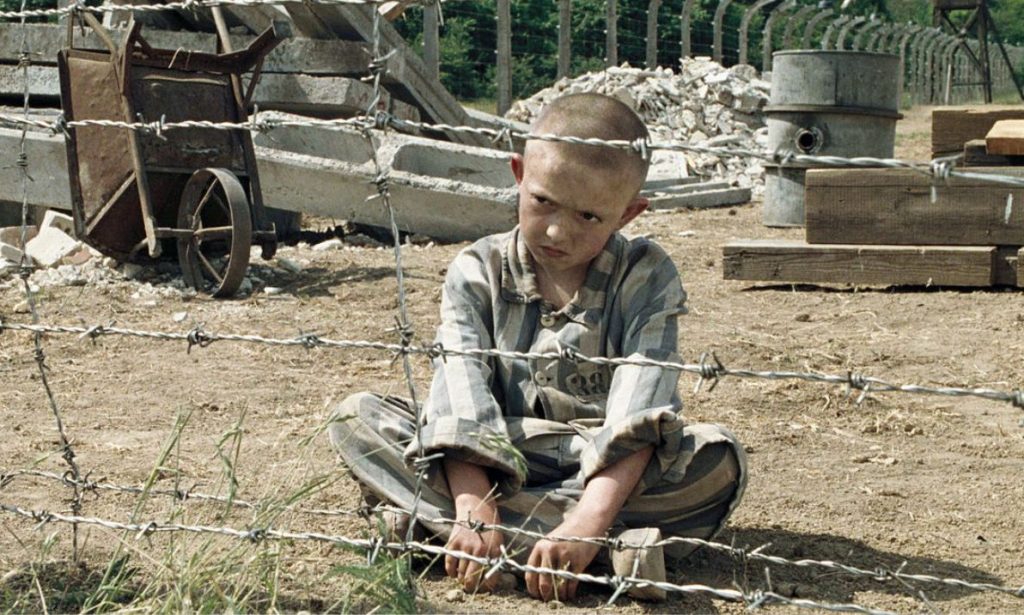

What films like Schindler’s List, It’s a Beautiful Life, and Oppenheimer, to name a few share in common is they all have power over a narrative that is not only their own. This power is dangerous and problematic. One has to consider the power structure existing behind seemingly innocent humanitarian films, trying to echoe the wisdom of “the enemy is someone whose story you have not heard”.
Relating this to the Palestinian-Israeli conflict, which is very narrative sensitive both from a historical and a political level. The settler colonialism of Israel over Palestinian lands since the early decades of the twentieth century suffers from a narrative imbalance that cinema can and is contributing to.
In a world that uses the words jew and Israeli interchangeably, successful films that depict the Jewish people as extremely victimized and displaced are harmful to the Palestinian conflict when done wrong, because it disrupt the mental image of a group of people whose ways to heal from the trauma was to get entitled to stealing other people’s lands, the Palestinian land. It could in one hand equalize “Jewish” with “Zionist”, “Israeli”, “anti-sematic”, or detach terrorism from the equation.
Humanitarian cinema has its share of echoing the Palestinian strife for independence and freedom, but it remains on an unequal foot with the Zionist narrative, and this is something that needs to be addressed. Cinema in this regard not only has a humanitarian aspect but also a political and historical aspect, a constructionist role.
The systematic occupation of Palestine began in the early decades of the twentieth century, spanning 76 years since the 1948 Nakba. The rule of thumb is that literature, art is trying to go against the grain of an already established power structure. We have seen this with the emergence of post-colonial literature, and feminist literature. They always begin on a small scale, romanticizing, and flirting with the personal experience exercised in intimate language understandable by the minority.
The lower in the strata of a power narrative, is the one who exerts more power to put themselves on equal footage with the one in the higher strata. This simply means that Humanitarian cinema about Palestinian strife strives to gain status in the ocean of Western and foreign film industries controlled by large production houses.
Taking for example two of those that received international attention. The first film ‘3000 Nights’ was directed by Mai Masri. It narrates a bigger story in light of individual stories of the underground world of Israeli prisons. 3000 Nights is based on a real story of a Palestinian pregnant mother sentenced to 8 years in an Israeli prison during which she gives birth to her child and raises him inside the prison walls. 3000 Nights was screened in the 2015 Toronto International Film Festival and submitted for the Best Foreign Language Film at the 89th Academy Awards.
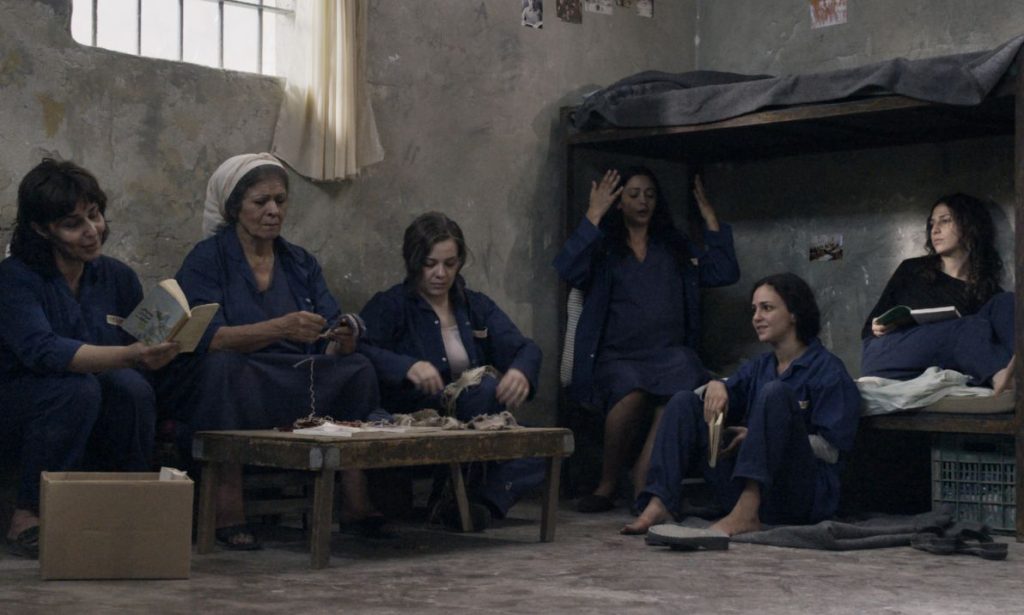

The other acclaimed film ‘Omar’ was directed by Hany Abu Assad. It is also a story about imprisonment, but also about climbing the West Bank border, about love mediated between borders inside the Palestinian lands. It depicts how people try to adjust to the restrictions as someone who has no other choice but to adjust to a tumor in their body.
The drama was screened at the Toronto International Film Festival and Cannes Film Festival (where it won the Special Jury Prize) and snagged an Academy Award nomination in the Best Foreign Language Film category. It was screened at the 2013 Toronto International Film Festival, nominated for Best Foreign Language Film at the 86th Academy Awards, and won Best Feature Film at the 2013 Asia Pacific Screen Awards.
Films about Palestine, like Omar, 3000 Nights, It Must Be Heaven, Wajib, Gaza Mon Amour and a handful of others are crucial because they disarm the mono-representations of the Palestinian people, and show the audience the minor individual stories that are easy to get swept in the bigger narrative. Humanitarian cinema about Palestine refers to films shot in the region, or outside, by Palestinians, or directors of other nationalities. They are a wide genre about a story that has not yet seen its end.
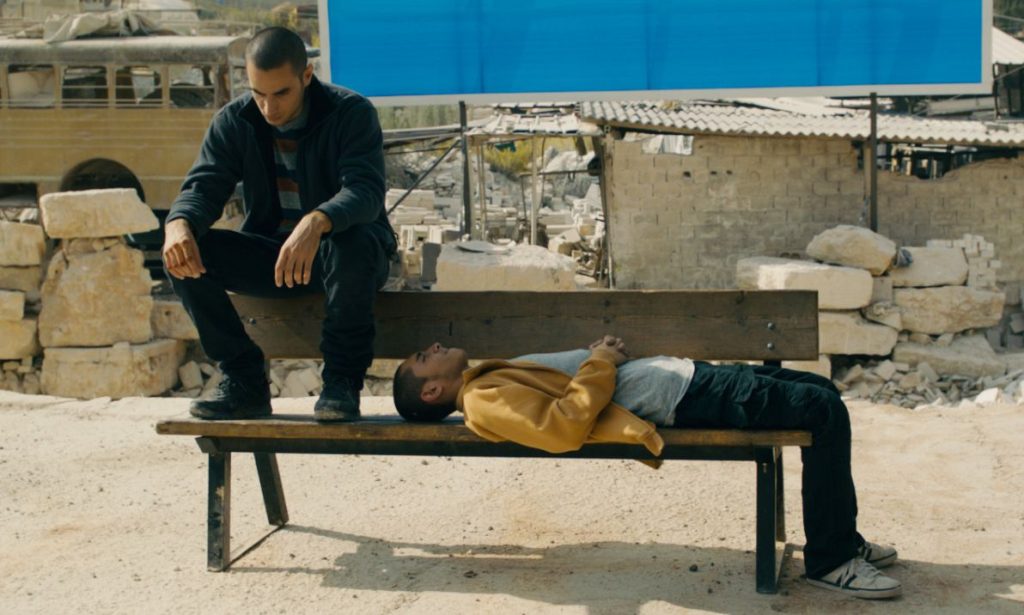

Cinema is powerful. The Palestinian strife shall seep through it and thrive. This has to be achieved through assertiveness, totality, and diversity of narration. Changing the mental image of the ‘Orient’ ‘Arab’ ‘Muslim’ ‘patriarchal ‘Palestinian’ is just as crucial as the on-ground fight. Films about Palestine have to step out of being characterized as ‘indie’, or personal. It must stand both on its own and achieve universal appeal. The story demands to be told encompassing the present, the past, and the future.
WE SAID THIS: Don’t Miss…From Farah Nabulsi To Hany Abu-Assad: Highlighting Filmmakers Capturing Palestine Through Film


